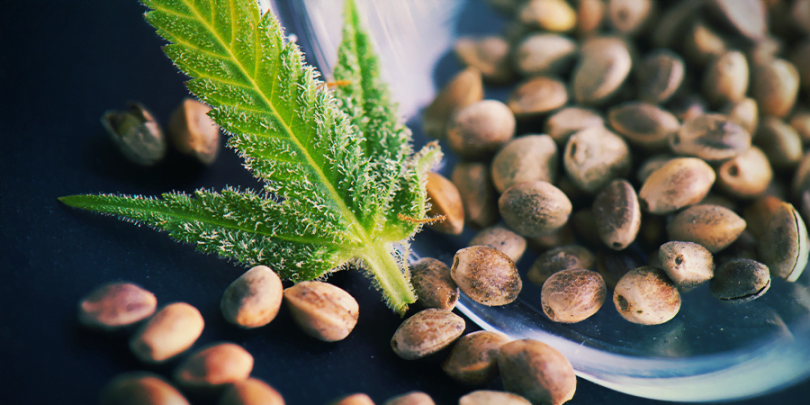Cannabis seeds are right for you, and we can now find them in many diets. Thanks to Sensoryseeds, a shop online specialized in cannabis seeds, you can now easily access the best weed seeds on the market and get your cannabis seeds delivered to you in a short time.
But if you want to understand more about the many benefits from the cannabis seeds … then here we have some useful information for you!
Cannabis seed is ideal for vegetarians and vegans
Cannabis seed is therefore also an excellent dietary supplement for vegetarians, vegans and people who want to eat a little less meat.
Weed seed is well also absorbed by the body. Besides, cannabis proteins are better absorbed than proteins from other plant sources such as nuts, cereals and legumes.
The sources of protein that can be considered complete are generally to be found on the side of foods of animal origin, such as red meat or chicken. Cannabis seeds and quinoa are the only plant foods that can be considered as complete sources of protein.
Cannabis seeds are a source of essential proteins
Cannabis seed is considered a complete source of protein because it provides all the essential amino acids.
What makes cannabis seed so special is that it is one of the few plant foods to provide all the essential amino acids.
Essential amino acids are amino acids that the body cannot make from other amino acids and therefore must be taken from the diet.
Here is the detail of the amino acid content of the cannabis seed (per 100g):
- alanine 1.27 g
- arginine 3.09 g
- aspartic acid 2.79 g
- cysteine 0.43 g
- phenylalanine 4.55 g
- glutamine 1.15 g
- histidine 0.72 g
- isoleucine 0.97 g
- leucine 1.71 g
- lysine 1.02 g
- methionine 0.59 g
- phenylalanine 1.16 g
- proline 1.17 g
- serine 1.15 g
- threonine 0.87 g
- tryptophan 0.22 g
- tyrosine 0.84 g
- valine 1.28 g
A source of vegetable proteins
Even if the Western diet is deficient in protein, the world health organization increasingly recommends replacing (in part) animal protein sources with vegetable protein sources. Cannabis seed is an excellent choice for this purpose. Cannabis seed can be sprinkled on salads or mixed with yoghurt or green smoothies.
Cannabis seed has a very high protein content for food of plant origin. Only soybeans contain more protein. Cannabis seed proteins are better absorbed than soy proteins.
Besides, 100 g of cannabis seeds contain 31 g of protein.
The role of protein in our health
Proteins are the building blocks of muscle and body cells. They play an essential role in muscle recovery, muscle development, overall resistance to pathogens and the endocrine system.
Cannabis seed is exceptionally nutritious
Cannabis seeds have been an important food source in many cultures for thousands of years. However, it is only in recent years that serious research has been conducted on the nutritional value of cannabis seed and its potential as a dietary supplement.
Cannabis seed composition
Cannabis seeds are made up of 30% fatty acids and 25% protein. Besides, they are made up of dietary fiber, carbohydrates (3%), water, vitamins and minerals. It is especially its fatty acid content that makes cannabis seed a popular superfood.
Essential fatty acids
Cannabis seed contains small amounts of two essential fatty acids. These are linolenic acid (an omega-6 fatty acid) and alpha-linolenic acid (an omega-3 fatty acid).
One of the nice things about cannabis seeds is that they have a good ratio of omega-6 fatty acids to omega-3 fatty acids, that is, 3: 1.
GLA
Cannabis seed is composed of 30% fatty acids and contains, besides the fatty acids already mentioned, gamma-linolenic acid (GLA). Under the influence of vitamins B3, B6 and C, the body transforms gamma-linoleic acid into types 1 and 3 prostaglandins. It works as an anti-inflammatory, lowers blood pressure and has a vasodilatory effect. It also inhibits the production of cholesterol ( source ).
The fatty acid content of cannabis seed
Below is an overview of all the fatty acids found in cannabis seed:
- 55% linoleic acid (omega-6)
- 23% alpha-linolenic acid (omega-3)
- 9% oleic acid (unsaturated fatty acid)
- 6% palmitic acid (saturated fatty acid)
- 4% gamma-linolenic acid (omega-6 unsaturated fatty acid)
- 2% stearic acid (saturated fatty acid)
Cannabis seeds balance of the endocrine system
Gamma-linolenic acid (GLA) found in cannabis seed has a hormonal regulatory effect on the thyroid and pancreas. It can reduce the symptoms of hormonal imbalances, including disorders associated with menopause and PMS. These include mood swings, depressive symptoms and fatigue.
Evening primrose oil, GLA and SPM
Study in which women were taking evening primrose oil found a decrease in symptoms associated with PMS. Like cannabis seed, evening primrose oil has a high concentration of gamma-linolenic acid (GLA).
GLA and weight gain
Besides, GLA regulates the hormones involved in feeling hungry and gaining weight such as insulin. However, there is no scientific evidence that the cannabis seed would help lose weight or maintain weight.









